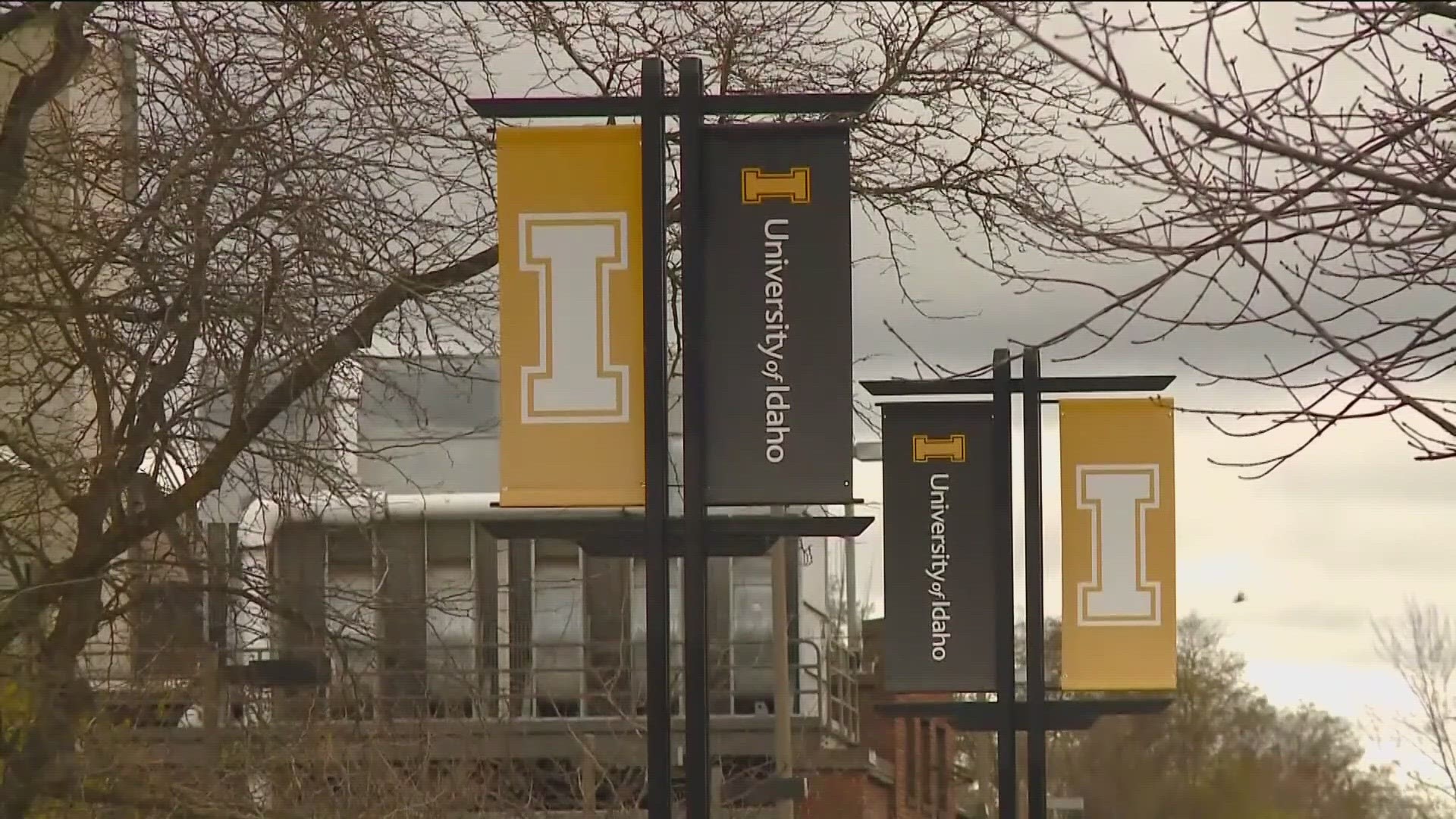IDAHO, USA — This story first appeared in the Idaho Press.
A judge has ruled that neither Idaho Attorney General Raúl Labrador nor his solicitor general is allowed to prosecute a case against the State Board of Education in an open meetings law case.
Ada County District Court Judge Jason Scott entered the ruling Friday, court documents show. To pursue litigation against the board for executive sessions regarding the University of Idaho’s bid to purchase the University of Phoenix, Labrador will need to appoint either outside counsel or someone else in his office.
The ruling was first reported by Idaho Education News.
The ruling came one day after the judge heard arguments on the board’s motion to disqualify Labrador from the case, alleging he sought confidential information from the board’s executive director before disclosing his intent to sue. The defendants also argued his office had a conflict because a deputy attorney general assigned to the board had advised members that the closed meetings in question were legal.
Labrador, in a statement posted to Twitter, said he was "pleased with the Court's decision because it ensures I can do my job and represent the people of Idaho."
He said the decision confirmed his office's authority to enforce Idaho's Open Meetings Law.
"This is an important ruling that will bring greater transparency and accountability to state government," Labrador wrote. "... I respect the Court's decision to act cautiously and have ordered certain attorneys in my office to be screened from participating in the Open Meetings lawsuit against the Board. The rest of my office will vigorously enforce the law and defend the people's right to transparent government."
Scott wrote in his ruling that the main issue was the phone call that took place with Labrador, Solicitor General Theo Wold, Deputy Attorney General Jenifer Marcus, and board Executive Director Matt Freeman on June 20, hours before the lawsuit against the board was filed.
The judge noted that the accounts of the call provided to the court are distinctly different; Freeman wrote that he “shared information openly and candidly” with Labrador in response to “probing questions” about the meetings in question, and didn’t learn of the lawsuit until the end of the call. Wold wrote in his testimony that the lawsuit was disclosed at the beginning of the conversation and that they at no point sought privileged or confidential information.
Labrador and Marcus did not submit their own accounts of what happened on the call.
Scott wrote he found Freeman’s account “more plausible.”
“(Freeman) says he spoke freely,” the ruling states. “A person in his position would be expected to clam up in response to an announced intention to file suit.”
He also wrote that the claim that Labrador sought no privileged information was “of dubious accuracy,” because by law, Labrador and his employees are lawyers for the state board and communications between the lawyers and their client are privileged.
“The prospect that the Attorney General’s office could or would use client confidences in litigation against a client undermines the trust placed in the office by government agencies and the public alike,” Scott said.
Scott disagreed with the defendants' argument that Marcus' conflict in the case was a reason to disqualify the rest of the office.
"Though it is jarring for an attorney general to sue a client of his office for following the advice of one of his deputies, Attorney General Labrador and members of his office other than Deputy Attorney General Marcus are not ethically prohibited from serving as counsel simply because he is suing the Board of Regents for following her advice."
Scott also disqualified attorney Timothy Longfield from the case but denied the board’s request to disqualify everyone in the office.
Labrador has until Sept. 5 to appoint new counsel or the case will be dismissed.
THE CASE
The lawsuit centers on an executive session held by the state board, acting in its capacity as the Board of Regents for the University of Idaho, in regard to a proposed acquisition of the online higher education school.
The meeting was held May 15 under Idaho’s exemption under the Open Meetings Law that allows closed meetings to “consider preliminary negotiations involving matters of trade or commerce in which the governing body is in competition with governing bodies in other states or nations.”
Labrador’s lawsuit alleges that the negotiations at that point weren’t “preliminary,” because the board voted three days later to allow the deal to move forward. It also argues that no other entities were in competition for the sale at that point.
UI and the University of Phoenix have since told the court that negotiations were still considered preliminary, especially because the deal has not yet been finalized, and that there are other entities still interested in purchasing the online school.
Those involved in negotiations had been under strict non-disclosure agreements, and many other officials and the public were largely unaware of the proposal until the day before the board voted to move it forward.
The May 18 vote allowed the university to create a not-for-profit corporation that would execute the sale and oversee the university if the transaction goes forward.
The transaction still requires approval from both schools’ accreditors.
Watch more Local News:
See the latest news from around the Treasure Valley and the Gem State in our YouTube playlist:

